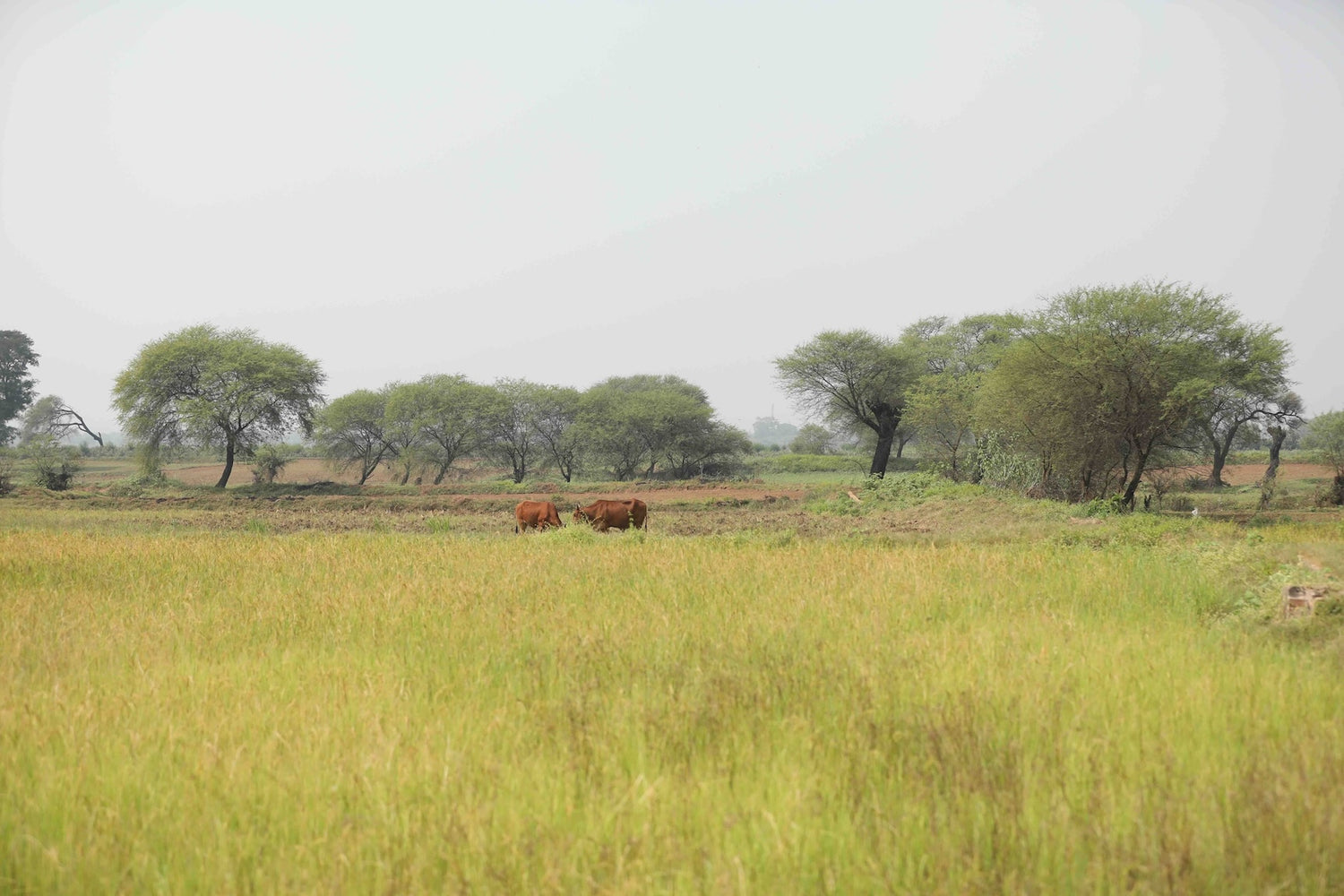College students look no further for ethical and sustainable backpacks! Here are our picks for the top three eco-friendly and socially responsible backpack brands.
1. Terra Thread
Terra Thread puts people and the planet at the forefront when it comes to providing students with backpacks, and therefore, adheres to many high standards put forth by fair trade and labor organizations. Crafted with Fairtrade Certified Organic Cotton and manufactured at a Fair Trade USA Certified Factory, Terra Thread backpacks meet high ethical standards that ensure workers’ rights are protected by providing safe working environments, gender equality, and so on.
With the partnership with Fairtrade, Terra Thread works with farmers from small cooperatives in India. Fairtrade Standards protect farmers’ health and safety and encourages and empowers them to protect the natural environment. Fairtrade standard also prohibits the use of child labor. The benefits of Fairtrade go beyond just extra income for farmers – they also address issues like Gender Equality and Climate Change. Terra Thread backpacks are made in a Fair Trade Certified Factory which operates under Fair Trade Factory Standards. These standards guarantee safe working conditions and advance the economic development of workers through the Fair Trade Premium. The Fairtrade Premium is an extra sum of money paid on top of the selling price that farmers or workers invest in projects of their choice. They decide together how to spend the Fairtrade Premium to reach their goals, such as improving their farming, businesses, or health and education in their community. Terra Thread backpacks are Global Organic Textile Standard (GOTS) Certified. Through this, Terra Thread meets very stringent social and environmental guidelines for the entire supply chain, including strong labor provisions and prohibition of toxic chemicals. On top of this, Terra Thread backpacks are entirely traceable with a transparent supply chain.
Most backpacks in the market today are made from detrimental synthetic fibers, such as polyester and nylon. These synthetics are man-made using crude oil, which makes these fibers damaging to the environment in its extraction, production, and even post-use. Discarded polyester and nylon fabrics take hundreds of years to biodegrade, and in the process of breaking down, they leave the planet’s precious ecosystems and waterways riddled with microplastics. Terra Thread decided to make their backpacks with 100% organic cotton because of its lower environmental impact compared to other backpack materials on the market. Terra Thread’s backpacks are extremely durable and will last a long time, combating overconsumption of precious materials and resources. Additionally, organic cotton production costs less energy and water than both conventional cotton and synthetics. It is also free of toxic chemicals and genetically modified organisms (GMOs), which protects the environment and its native species. Not to mention, Terra Thread backpacks are vegan.
Most importantly, Terra Thread is committed to limiting carbon emissions because of its impact on climate change, which affects both people and the planet. Not only does producing organic cotton backpacks generate lower atmospheric carbon than conventional cotton and synthetics, but Terra Thread backpacks are also 100% carbon neutral. To achieve this, Terra Thread invests in sustainability projects, certified by Gold Standard and CDM, that support renewable energy and afforestation/reforestation.
2. Patagonia
As large of a corporate entity as Patagonia is, their products, including backpacks, have remained true to their ethical values. Patagonia emphasizes social responsibility and ensures that their backpacks are produced under safe, legal, fair, and humane working conditions. Patagonia also partnered with Fair Trade USA and the Fair Labor Association to launch its Living Wage Program for workers to earn enough to provide them and their families a decent standard of living. Over 65,000 workers benefit from Patagonia’s Fair Trade program with Fair Trade USA and the vast majority of their products are Fair Trade Certified sewn. In addition, Patagonia backpack materials are traceable and they share information on their facilities and suppliers on their website.
Patagonia has established its own strong guidelines for its products and materials that protect both the planet and its inhabitants. Information on how and why each material is used can be found directly on their website. Patagonia backpacks are made using polyester and nylon, but more often than not these are recycled synthetic materials. Their main focuses are on durability and repairability because they want their backpacks and materials to remain in use for a long time, preventing the need to consume more energy and water, while creating less trash. They also have Worn Wear where students can buy used, trade in, or fix their Patagonia backpacks.
On top of these efforts, Patagonia donates 1% of all sales to restore and prevent further degradation of the natural environment. Another way they help the environment is by turning fishing nets into hat brims, which prevents tons and tons of plastic from ending up in the ocean. Also, all of the company’s electricity needs in North America are met with renewable energy sources. By 2025, Patagonia aims to be completely carbon neutral.
3. BeeKeeper Parade
BeeKeeper Parade backpacks are ethical in the sense that they give back to the next generation in a big way. Each purchase contributes to BabyTree Projects, a charity that was established by BeeKeeper Parade’s founders. Through this charity, BeeKeeper Parade fights for children’s rights and works to provide rural Cambodian children with access to quality education. Thus far, they have been able to build five schools in Cambodia and raise half a million dollars for uniforms, supplies, and much more. BeeKeeper Parade has been able to fund over 3,000 places for children to learn English and advance their social and economic circumstances. One of the brand’s founders was once himself an impoverished Cambodian boy who was able to lift himself out of poverty through obtaining a quality education.
In terms of sustainability, BeeKeeper Parade’s mission revolves around taking care of the planet. The brand seeks to not only do no harm to the environment, but also find solutions to the planet’s environmental problems. One of the ways BeeKeeper Parade has done this is by upcycling high quality textiles that have been discarded and using them to make their backpacks and other products. Through this, they keep the fabrics in play by bringing new life into the textile and transforming it into functional items. In addition, BeeKeeper Parade aims to nourish people and animals, as well as encourage people to consume less.
SUMMARY
All of these brands provide college students with backpacks that are both ethical and sustainable. All in all, college students can’t go wrong with supporting any or all these environmentally and socially conscious brands when purchasing their backpacks-- it all comes down to personal preference.
SOURCES
About Organic Cotton. http://aboutorganiccotton.org/
BeeKeeper Parade. https://beekeeperparade.com/pages/who-we-are
Dartmouth College. http://www.dartmouth.edu/~cushman/courses/engs171/UsefulNumbers.pdf
Green America. https://www.greenamerica.org/unraveling-fashion-industry/unpacking-toxic-textiles
Green Choices. https://www.greenchoices.org/green-living/clothes/environmental-impacts
Patagonia. https://www.patagonia.com/business-unusual/
Stockholm Environment Institute. https://mediamanager.sei.org/documents/Publications/SEI-Report-EcologicalFootprintAndWaterAnalysisOfCottonHempAndPolyester-2005.pdf
Textile Exchange. https://textileexchange.org/wp-content/uploads/2017/06/TE-Material-Snapshot_Organic-Cotton.pdf





